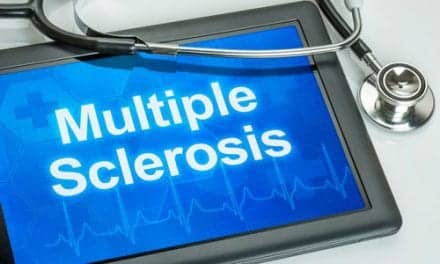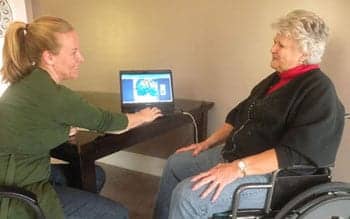Persons with spinal cord injury and older healthy individuals have similar brain activation during processing speed tasks, according to this Kessler Foundation study, which researchers suggest supports the theory of accelerated cognitive aging following spinal cord injury.
In the study, a team of rehabilitation researchers studied processing speed deficits in individuals with spinal cord injury (SCI), comparing their brain activation patterns with those of healthy age-matched controls, and older healthy individuals. The SCI group and older controls had similar activation patterns, but the SCI group differed significantly from their age-matched controls, according to the study, published in Brain Topography.
Focus: Processing Speed
Individuals with chronic SCI have an increased risk for cognitive deficits that resemble the deficits associated with the aging process, giving rise to the theory of “accelerated cognitive aging.” As reported previously by this team, the deficits affect processing speed, new learning and memory, and verbal fluency, which are the domains affected during aging. This study examines the neural mechanisms of higher order cognitive tasks of individuals with SCI. The focus was on processing speed, which is known to be affected by SCI and aging, and is integral to cognitive function and everyday life activities, a media release from Kessler Foundation explains.
The 30 participants were participants of a larger study who underwent optional neuroimaging studies at the Rocco Ortenzio Neuroimaging Center at Kessler Foundation — 10 individuals with cervical SCI, 10 age-matched controls, and 10 healthy older individuals. In addition to traditional neuropsychological testing methods, processing speed was tested in the scanner, using timed letter comparison tasks during functional magnetic resonance imaging (fMRI).
Significant differences in brain activation were found between the SCI group and the age-matched control group, but the SCI and older groups had similar patterns, including activation of the hippocampal, frontal and parietal areas, per the release.
“This suggests that individuals with SCI are compensating for deficits in processing speed by relying on the areas of the brain involved in executive control and memory, which supports the theory of accelerated brain aging after SCI.”
— Nancy D. Chiaravalloti, PhD
Despite the limitations of sample size and level of injury, the study is an important contribution to our understanding of the impact of SCI on cognition. Our ability to observe brain activation while the individual performs specific cognitive tasks provides new information on the mechanisms that underlie the cognitive deficits that we now know affect a substantial proportion of the SCI population.
“Developing treatments targeted to these deficits depends on our pursuit of this line of research, which may benefit other populations affected by delayed processing speed.”
— Glenn Wylie, DPhil, director of the Ortenzio Center
[Source(s): Kessler Foundation, EurekAlert]
Related Content:
This Device Aims to Improve Spinal Cord Injury Treatment
Spinal Cord Injury Causes This, Per Researchers
New Guidance Takes Guesswork out of Exercise for People with Spinal Cord Injury




